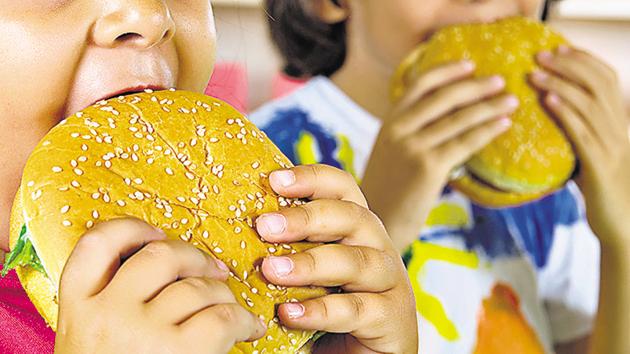The food choices children make today are critical to shaping their long-term health, well-being and happiness. It is the collective responsibility of parents and society to guide children to make informed and well-rounded food choices. By instilling healthy eating habits early, we lay the foundation for better health, energy and vitality for a lifetime.

The role of parents in the formation of healthy eating habits
In an interview with HT Lifestyle, Dr. Abhishek Chopra, Consultant Neonatologist and Pediatrician at Cloudnine Group of Hospitals in Punjabi Bagh, New Delhi, shared, “Parents have a major influence on a child’s food choices. Research shows that children prefer healthy foods when eaten regularly. Parents can introduce a variety of fruit, vegetables, whole grains, lean proteins and healthy fats, ensuring meals are tasty and nutritious.”
He added: “Role models are key – children are more likely to adopt healthy eating behaviors when they see their parents practicing them. Involving children in cooking and explaining the health benefits of different foods can make mealtimes enjoyable and informative, reinforcing the importance of healthy eating.”
The power of education and awareness
Dr. Abhishek Chopra opined, “Apart from providing healthy food, educating children about nutrition is crucial. Schools play an important role in teaching children how food affects their energy, concentration and mood. Programs that introduce children to where food comes from, such as visiting farms or growing a garden, encourage informed food choices and increase nutrition awareness.”

Promotion of healthy nutrition in society
Creating an environment that supports healthy eating is essential. Dr. Abhishek Chopra suggested, “Schools, communities and health care companies should offer nutritious food options and promote physical activity. The availability of fresh produce, nutrition programs and sports activities all contribute to a holistic approach to health and wellness.”
Long-term benefits of healthy choices
Making healthy food choices has lasting benefits. Dr. Abhishek Chopra said, “Children who eat a well-balanced diet are more likely to develop stronger immune systems, better mental health and a lower risk of chronic diseases such as obesity, diabetes and heart disease. In addition, a healthy diet improves cognitive function, boosts energy, and improves mood. Incorporating physical activity along with proper nutrition contributes to a healthy and happy life. Active children are more likely to develop healthy habits, which will lead to reduced stress, improved physical health and a sense of well-being.’
Basic products for healthy eating
Children should enjoy a variety of foods from the following groups:
- Fruit
- Vegetables
- Legumes, legumes, beans
- Grain like wheat, corn, barley, rice
- Low-fat varieties of meat, poultry, fish
- Dairy like milk, yogurt and cheese
Foods like chapati, paratha, rice, poha, oats and millet release energy slowly, providing long-lasting energy. Milk, cheese and cottage cheese are excellent sources of protein and calcium. Low-fat dairy products are recommended for overweight children.
Foods to avoid
Limit foods high in fat, sugar or salt, such as:
- Cookies, cakes, chocolate and ice cream
- Canned, packaged or processed foods with preservatives
- Commercial breakfast cereals
- Caffeinated beverages, including coffee, tea, and energy drinks
Milk and juices
Dr. Abhishek Chopra advised, “Breastfeeding should continue for at least two years. Cow’s milk can be introduced at one year, and whole milk is recommended at 1 to 2 years of age for brain development. After 2 years, replace whole milk with low-fat or skim milk. Juices should be avoided under the age of two due to the high sugar content of packaged juices. Whole fruit is the best option as it provides fiber and helps prevent constipation.’
Managing fussy eaters
For fussy eaters, Dr. Abhishek Chopra recommends, “Parents can introduce one or two new meals a week and involve children in choosing and preparing the food. Making food fun by cutting fruits and vegetables into interesting shapes can encourage children to try new foods. Never force your child to eat as this can backfire.’

The role of physical exercises in the formation of a healthy lifestyle
It’s no secret that physical activity improves academic performance, fitness, and overall health. Dr. Abhishek Chopra stated, “Preschoolers (ages 3-5) should get 3 hours of active play each day, and children ages 6-17 should get at least 60 minutes of physical activity each day. Exercise combined with proper nutrition promotes lifelong health and well-being. By encouraging healthy food choices and regular physical activity, we help children build a foundation for a bright, healthy future.”
Disclaimer: This article is for informational purposes only and is not a substitute for professional medical advice. Always consult your doctor for any health concerns.










